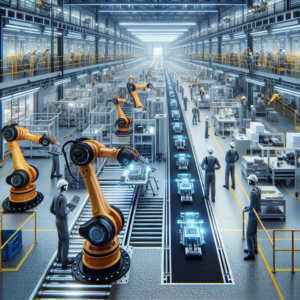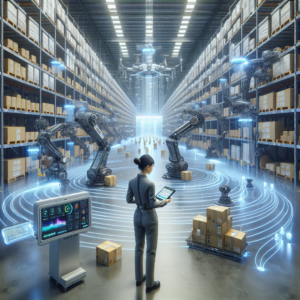Are the Internet and AI Affecting Our Memory? What the Science Says
In an age where information is more accessible than ever, our dependence on the Internet and artificial intelligence (AI) raises an intriguing question: Are these technologies affecting our memory? The proliferation of smartphones and the ease of accessing vast amounts of information at our fingertips can lead to a cognitive shift in how we store, recall, and utilize knowledge.
The Cognitive Load of Information Overload
As the Internet continues to expand, the amount of information available can be overwhelming. This phenomenon is often referred to as information overload. According to research, being inundated with information can lead to decreased memory retention. When we access information quickly through search engines, we may not commit it to memory as we would if we had to recall it from our own knowledge base.
The brain, designed to filter and prioritize information, may struggle under the weight of excessive input. Studies suggest that our cognitive capacities are limited, and when we overload our working memory with too much information, we risk not retaining important facts and experiences. Instead of deeply processing the information, we might skim over it, leading to a shallow understanding and poor recall.
The Role of AI in Memory Formation
AI technologies, such as virtual assistants and recommendation algorithms, are becoming ingrained in our daily lives. These tools often help us perform tasks more efficiently, but they also alter how we remember information. For instance, when we use AI-driven reminders or search queries that fetch information quickly, we’re less likely to engage in deep learning processes necessary for memory formation.
Research indicates that reliance on external memory sources — like Google or Siri — may lead to a phenomenon known as “digital amnesia.” This term describes our tendency to forget information we feel we can easily access online. In a sense, we are outsourcing our memory to the internet, which can have long-term implications on our cognitive functions.
Effects on Memory Techniques and Strategies
As we adapt to the digital age, our traditional memory techniques have evolved. While some argue that technology undermines our ability to remember things independently, others suggest that it creates new opportunities for memory strategies.
Enhanced Memory Tools
The Internet and AI can also serve as powerful tools for improving memory. For example, numerous apps and online platforms are designed specifically to enhance learning and retention. These tools often incorporate spaced repetition, a technique proven to improve memory recall by spacing out learning sessions. By leveraging technology in this way, we can potentially enhance our memory performance rather than hinder it.
Moreover, collaborative learning platforms allow people to share knowledge and engage in discussions, fostering a social aspect of memory retention. Engaging with others not only helps in retaining information but also in understanding various perspectives, enriching our knowledge base.
Memory Palace and Digital Alternatives
A classic mnemonic device, the Memory Palace technique, involves visualizing a familiar space and associating information with specific locations within that space. While this method has been used for centuries, its digital adaptations have emerged in recent years. Virtual reality (VR) and augmented reality (AR) technologies can create immersive environments for memory association, potentially making the traditional Memory Palace even more effective in the digital era.
By integrating these age-old techniques with modern technology, we can craft innovative ways to enhance our memory and learning experiences, proving that technology doesn’t have to compete with memory; it can complement it.
Memory and the Impact of Social Media
Social media platforms have transformed the way we remember events and experiences. With the ability to document our lives through posts, photos, and videos, many argue that this constant documentation aids our memory. However, the reality may be more complex.
Fragmented Memories
While social media allows us to capture moments in real-time, it can also lead to fragmented memories. Users often curate their posts, showcasing only the best moments, which could skew our recollection of events. When we rely on social media to recall significant experiences, we risk developing a distorted memory, where the highlights overshadow the reality of events.
Moreover, the habit of constantly sharing our lives online may inhibit our ability to internalize experiences fully. As we focus on capturing the perfect moment for social media, we may miss the opportunity to engage deeply with our surroundings, ultimately affecting our memory retention.
The Diminished Need to Remember
The notion of “digital amnesia” refers to our inclination to forget information we know we can easily find online. This reliance on technology creates a paradox — the more information we have access to, the less we might feel the need to remember it. The ease of searching for facts and figures online can diminish our intrinsic motivation to retain knowledge.
Instead of fostering a robust memory, we may be training ourselves to depend on external sources for recall, leading to a culture in which memory is undervalued. While technology offers conveniences, it’s crucial to recognize the importance of actively engaging with information rather than passively consuming it.
Strategies for a Balanced Approach
Given the implications of our increasingly digital lives, it is essential to adopt strategies that balance the benefits of technology with the need for effective memory retention.
Mindful Technology Use
One effective approach is to practice mindful technology use. Being aware of how and when we rely on technology for memory can help us make intentional choices. For instance, setting boundaries on the use of digital devices during learning or social interactions can encourage deeper engagement and memory retention.
Combining Traditional Techniques with Technology
To harness the advantages of both traditional memory techniques and modern technology, consider integrating them in your daily practices. For example, you could use AI tools to set reminders while also committing important dates or information to memory through repetition and visualization techniques.
Additionally, utilize collaborative tools that foster discussions and sharing of knowledge. Engaging with others strengthens cognitive connections and reinforces memory through social interaction.
Conclusion
The interplay between the Internet, AI, and our memory is a complex and evolving topic. While the convenience of technology can lead to diminished memory retention, it also offers tools for enhancing our cognitive abilities and learning experiences. By adopting mindful practices and blending traditional memory techniques with modern innovations, we can navigate the challenges posed by digital distractions and foster a healthier relationship with our memory.
As we continue to advance into the digital age, understanding the impact of technology on our memory is crucial. By taking a proactive approach, we can ensure that we do not lose our capacity for memory in this fast-paced, information-rich world.



